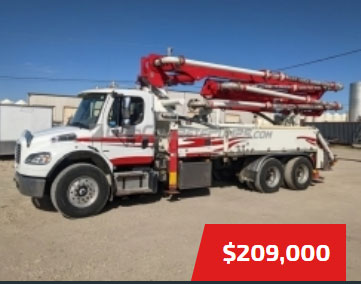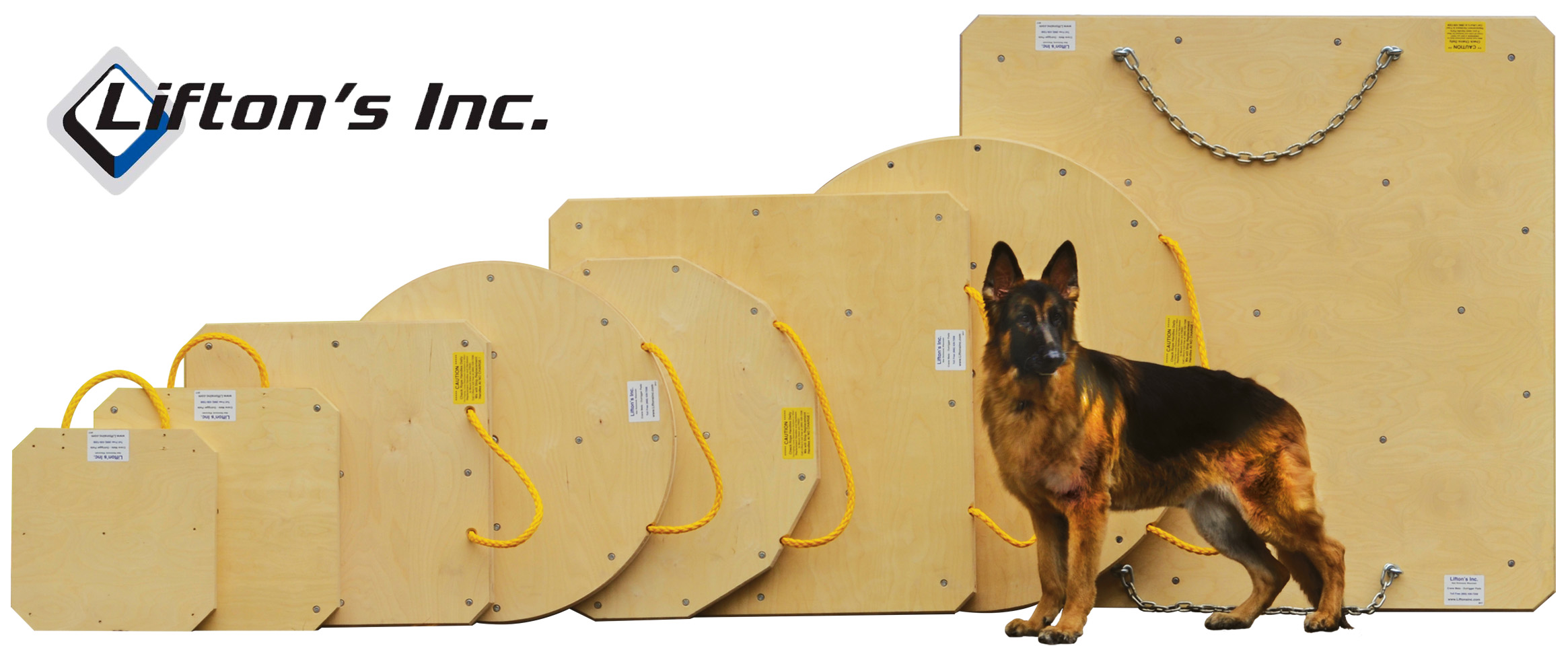| Many | 04-25-2007 | comment profile send pm notify |
|
After reading Bob and Todds posts a depressing thought came to mind.I know my last employer said operators stay on pump (the biggest).Well how is he to know what's going on at the work end?.With todays pumps capable of these high volumes and pressures it's a ticking timebomb.The mix designs people are coming up with expecting them to work.A simple thing as a saftey pin,I was not prepard for that picture.As we strive for an accident free enviroment,how can we convince contractors of this from there end?.I know on one of my jobs the pumping company had the plant change mix on me,added cost was cost effective.Can this industry change the contractors willingness to accept?.A lawsuit has no winners. |
||
| Todd | 04-25-2007 | reply profile send pm notify |
|
Many I am sorry for the shock of seeing that guys leg, it makes me sick every time I see it but now I look at clamps in a whole different way. That clamp is a tiger or a shark and I would treat it with the most respect possible to insure my safety and the safety of other around me. Again sorry for the shock but I hope it helps to keep you safe. P.S. Sorry I did not reply to your post but added another comment.
|
||
| Bob | 04-25-2007 | reply profile send pm notify |
|
It seems to me that the entire thing is another symptom of an industry in its early years. A crane contractor has no hesitation in TELLING his customer the price for the oiler. He doesn't ask. If you rent this crane, you pay for an operator AND an oiler. Think about it. What are they going to do; wheelbaro it? Use the crane that can't keep up now? Hell no! Our problem is that we are, as an industry, not united in any other way than by the fact that we all rent pumps. I am not talking about price fixing or any other illegal activity, just about safety. I wrote (a bit of a rant) about this very issue. Here ya go: The employee you need Your company is pumping an elevated deck and in order to do a professional job the operator is there, up on the deck, and not at the pump. He notices that the pump is not pumping, or that the boom won’t work. No one has bothered to tell him about the 80 gal of hydraulic oil on the ground under your machine. Or the last truck on the job finishes and he is ten floors in the air, it is dark and you are waiting for a call-back load. No one bothered to tell the operator that the last truck was three hours old when it backed up to the pump. Or your outrigger is slowly sinking – or someone hit the “E” stop……………… etc, etc. THE SOLUTION Every company needs a second man on the 52 – 55 – 58 – 60 – 61 – 63 - 65 meter pumps, and on elevated system jobs. They would save your company money. The operator works for the customer, and the second man works for the pump. One major problem with this concept is: Where do the people come from, and how do we find them? I think that the operators all ready know these people. They might work for crews you pump for, or just people they know. These are not trainees, they are laborers. They make appropriate wages for the job. If one of them was a natural he might be moved into a trainee position; but that is not the focus. If (when) one of these people saves a hydraulic pump he would have paid for himself. While the operator is pumping the second man is watching out for you and polishing wheels, waxing the cab, washing out system, checking the tickets and whatever else you instruct him to do. This program would be successful and make you a better service company. The customers could be sold on the concept and shoulder much of the cost; although the majority of the benefit would be to you. I think that the length of the booms, the level of service that the customers demand, the cost of the equipment and potential cost of litigation require that a second man be placed with the machines that meet these conditions.
|
||
| Many | 04-25-2007 | reply profile send pm notify |
|
Bob,well spoken.I wanted to say 2 people but trying to be politically correct.Unification,now that's one to remove from the dictionary.The operator on the deck is a safeguard,at the minumum a reduced risk.When a hose rope broke and the man fell off deck we stopped furnishing rope.I trust this isn't an omen.A subject to bring forward to the ACPA,perhaps.We can remember the days that 40 yds an hour was a good number,the price of productivity.I only wished old time values existed today. |
||
| Bob | 04-25-2007 | reply profile send pm notify |
|
I think that the work ethic is still alive and doing well........ sort of like a dollar is still a dollar. It is all relative. |
||
| eugene | 04-25-2007 | reply profile send pm notify |
|
nice leg shot, i almost did that to a kid with a hose end i thought but he and me was lucky. if it was a job that i could stop i could of let the mud set up until the clamp could be opened. but it was the last run of a block job and ya i was on the scaffold when my two inch cramed up tight. also it was not a block fill mix it was a 30/70 half inch six sack that i watered the last two yards and the mud separated just enought to tell me things were not right. i like two man line pump jobs it covers the bases better. |
||
| typesdubs | 04-26-2007 | reply profile send pm notify |
|
Funny Bob, these all are the things my father has been trying to school me on for the past few years. And I'm learning it's all true. For 25 years now, he almost always demands two men (that is two operators who both have almost equal knowledge) on the pumps, safety safety safety, stick to a set price no matter what. We have our steady customers who understand this and are glad to use us for our reputation, and those who don't. Guess what I'm trying to say is that it's nice to hear all these things from someone besides him. |
||
| Bigstickman | 04-26-2007 | reply profile send pm notify |
|
Hey Bob, I thought I read you are in the southeast some where? At your company you guys always send a laboror out with the big sticks? I have never heard of that in the South. You guys Hireing? |
||
| Bob | 04-26-2007 | reply profile send pm notify |
|
I live in the HOTLANTA,GA area. I do not work for a pumping company. The company that I did work for has 2 man crews on their 63 & sometimes on their 58 (not often). They are the exception, not the rule. I don't know of any other pumper in this area that has two people on a machine. It is bad form for me to mention names of pump companies. If you would send me an email I will give you their name. They are always looking for good help. irbsjr@msn.com |
||
| 79xlch | 04-27-2007 | reply profile send pm notify |
|
I line pump in Alabama. I always take 2 or 3 people with me on pump jobs. I run the pump and 1 man runs the end and the 3rd is my eyes. I charge for this and am starting to pick up a lot of work. As a contractor we love booms because we do not want to pull around hose, there are no extra people on the placement crew. So when I have people to do that the contractor loves it. We will never replace the boom for volume or ease but we are starting to keep there 2.5" hose on the truck and making money. |
||
| Bob | 04-27-2007 | reply profile send pm notify |
|
I love your plan. If, like most sub-contractors you pay your employees for "time worked." You are actually saving your customers from hiring, and paying, an individual for an entire day for just a few hours work. Most intelligent companies will know this to be true and not consider your 'extra people' as 'extra' but rather necessary for the work accomplished. By your providing this service a 'thinking' company realizes that you are saving him money. Plus you are providing him with personnel that know what you are doing. (((I wonder why the South did not win the "war of northern agression"))) Good business plan!!! |
||
| Many | 04-27-2007 | reply profile send pm notify |
|
Hi,the only thought that comes to mind is "Implied liability" for the pump company.Say something happend and the pump company was say in charge,who would catch the brunt of the lawsuit?.As everyone knows liability is a big issue.When I went from simple landscaping and r & r of concrete,added digging they added $12000.00 annual priemium.This is like comparing a klidesdale to a mule. |
||




















.jpg)
.gif)

.jpg)









.jpg)








